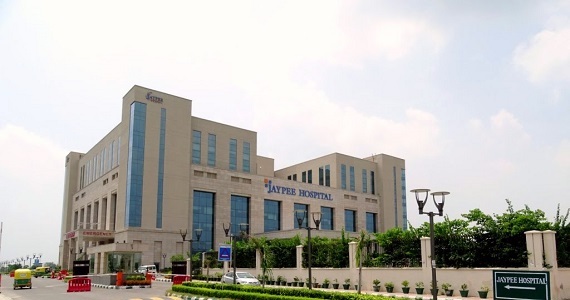ERCP / Biliary Stenting Treatment in India
treatment
starting from
Introduction:
Endoscopic retrograde cholangiopancreatography (ERCP) is a specialized medical procedure that combines endoscopy and fluoroscopy to diagnose and treat conditions of the bile and pancreatic ducts. Biliary stenting is a common therapeutic intervention performed during ERCP to relieve biliary obstruction. This minimally invasive approach is used to address various biliary disorders, including gallstones, tumors, and strictures, providing patients with significant relief and improved quality of life. This article provides a comprehensive overview of ERCP and biliary stenting, including its principles, symptoms, causes, treatment, benefits, cost in India, and its significance in biliary obstruction management.
Principles of ERCP and Biliary Stenting:
ERCP and biliary stenting are guided by several fundamental principles:
- Visualization of Biliary Tract: ERCP allows direct visualization of the bile ducts and pancreatic duct, enabling the identification of any obstructions, stones, tumors, or other abnormalities.
- Minimally Invasive Approach: ERCP is a minimally invasive procedure that is performed through the mouth and esophagus, without the need for external incisions.
- Therapeutic Intervention: During ERCP, various therapeutic procedures, such as biliary stenting, can be performed to address biliary obstructions and improve bile flow.
- Symptom Relief: Biliary stenting provides symptomatic relief by improving the flow of bile, reducing pain, jaundice, and other related symptoms.
Symptoms and Indications for ERCP and Biliary Stenting:
ERCP and biliary stenting are indicated for various biliary conditions and their related symptoms, including:
- Biliary Obstruction: Biliary stenting is commonly used to address biliary obstruction caused by gallstones, tumors, strictures, or other conditions.
- Jaundice: ERCP and biliary stenting can relieve jaundice, a yellowing of the skin and eyes caused by the buildup of bilirubin due to impaired bile flow.
- Abdominal Pain: Biliary obstruction can lead to severe abdominal pain, which can be alleviated through the restoration of normal bile flow.
- Cholangitis: ERCP and biliary stenting help prevent or treat cholangitis, a serious infection of the bile ducts caused by biliary obstruction.
Causes and Risk Factors:
Biliary obstructions and related conditions can be caused by various factors:
- Gallstones: One of the common causes of biliary obstruction is the presence of gallstones that block the bile ducts.
- Bile Duct Strictures: Strictures or narrowings in the bile ducts can lead to biliary obstruction.
- Pancreatic Tumors: Tumors in the pancreas or surrounding areas may compress the bile ducts, causing obstruction.
- Inflammation: Inflammatory conditions of the bile ducts, such as primary sclerosing cholangitis, can lead to narrowing and obstruction.
Treatment:
ERCP and Biliary Stenting: ERCP and biliary stenting involve the following steps:
- Pre-procedure Evaluation: Before the procedure, the patient's medical history, symptoms, and imaging studies are reviewed to determine the need for ERCP and biliary stenting.
- Anesthesia: ERCP is typically performed under sedation to ensure patient comfort during the procedure.
- Endoscopy: A thin, flexible endoscope is inserted through the mouth and esophagus into the duodenum, allowing the visualization of the bile and pancreatic ducts.
- Biliary Stenting: If a biliary obstruction is identified, a stent, which is a small tube, is inserted into the blocked duct to restore bile flow.
- Post-procedure Care: After the procedure, patients may be observed for a short period and are typically discharged the same day.
Benefits of ERCP and Biliary Stenting:
ERCP and biliary stenting offer several benefits in the management of biliary obstructions:
- Minimally Invasive: ERCP is a minimally invasive procedure that does not require external incisions, resulting in less pain and faster recovery.
- Symptom Relief: Biliary stenting provides prompt relief from symptoms such as jaundice, abdominal pain, and cholangitis.
- Improved Bile Flow: By removing or bypassing the obstruction, biliary stenting restores normal bile flow, aiding digestion and nutrient absorption.
- Avoiding Surgery: For many patients with biliary obstructions, ERCP and biliary stenting can eliminate the need for more invasive surgeries.
- Prolonged Effect: Biliary stents can remain in place for weeks to months, providing long-lasting relief from biliary obstructions.
Cost of ERCP and Biliary Stenting in India:
The cost of ERCP and biliary stenting in India can vary depending on factors such as the location of the medical facility, the expertise of the medical team, the complexity of the procedure, and the patient's overall health. On average, the cost of ERCP with biliary stenting in India ranges from ?40,000 to ?1,00,000 or more.
Conclusion
ERCP and biliary stenting are effective and minimally invasive approaches in the management of biliary obstructions. This combination of endoscopy and biliary stenting allows for direct visualization and therapeutic intervention, leading to symptom relief and improved bile flow. With its minimal risks and significant benefits, ERCP and biliary stenting offer patients a promising treatment option for various biliary conditions, enhancing their quality of life and overall well-being.
India's advanced medical infrastructure and skilled healthcare professionals make it a viable destination for patients seeking cost-effective and quality ERCP with biliary stenting procedures. As medical technology continues to advance, ERCP and biliary stenting are expected to become even more refined, further improving patient outcomes and the management of biliary obstructions. Through ongoing research, specialized expertise, and a patient-centered approach, ERCP and biliary stenting remain valuable tools in modern gastroenterology, providing patients with effective and minimally invasive solutions for biliary obstruction management.
How It Works
Need help in organizing medical travel to India?




